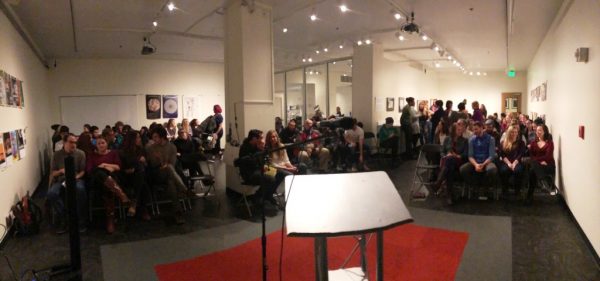
Last semester ended with a thesis reading from two MFA students: Sarah Wernsing (poetry) and Caleb Gonzalez (fiction). As the last event for the Creative Writing Reading Series fall semester, the Gregory Allicar Museum of Art was filled with students, faculty, and family, there to support these two graduate readers.
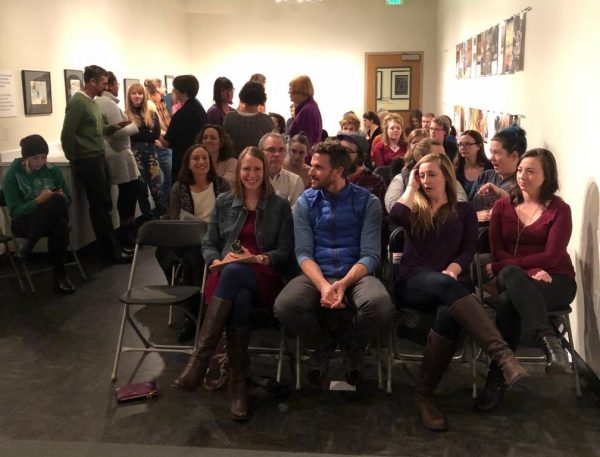
Sarah Wernsing began the evening, introduced by her advisor Camille Dungy. Wernsing writes about the suburbs, a world we don’t pay attention to because it’s a world that seems “normal” for many. But through her poetry about these suburban spaces, she is able to address themes like life, death, hope, and little birds.
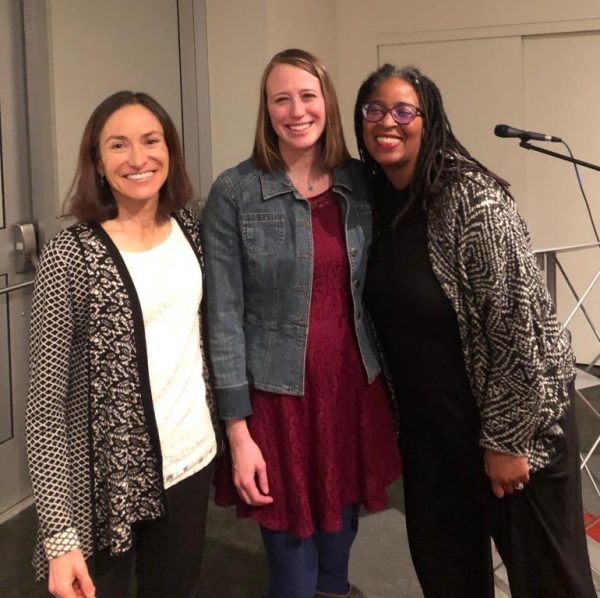
Wernsing’s poetry collection included “bird poems” that work to dissect the crisis of suburban life. Some of her other poems included lines that were not Wernsing’s, creating a mix of her own voice with the voice of others. Wernsing’s poetry also took us through the calendar seasons, like late harvest and summer. Through these seasonal shifts, Wernsing was able to delicately interweave suburban life with larger issues.
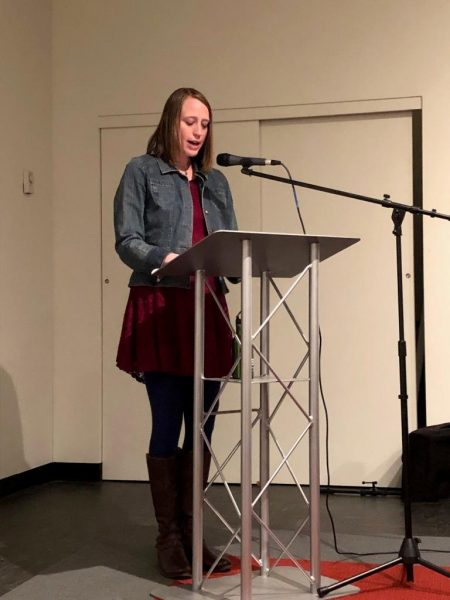
Throughout her reading, Wernsing addressed the body, showing an awareness of the body and the benign things that kill us. In her writing, through things as seemingly simple and mundane as suburban life and our own bodies, readers explore the complex realities of the world.
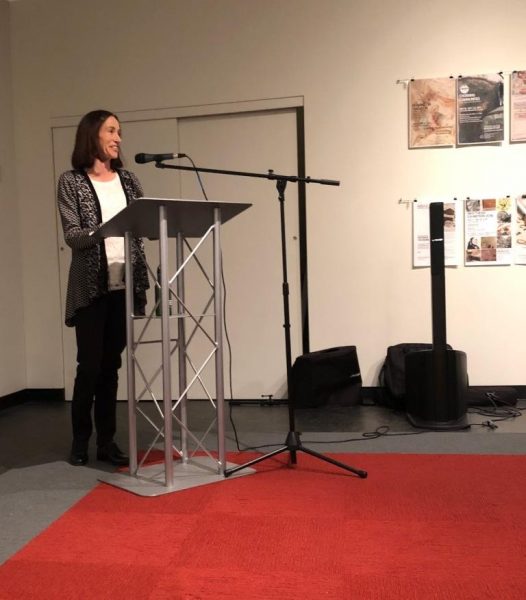
Caleb Gonzalez finished the evening, introduced by his advisor Debby Thompson. Gonzalez’s thesis collection includes a series of travel writings. As a multilingual person, Gonzalez uses his writing to think about different culture frameworks and how these histories can intersect. After finishing his MFA, Gonzalez is pursuing a PhD in Rhetoric and Composition, something that allows him to bring together different disciplines.
For the thesis reading, Gonzalez shared from two different micro essays that delve into the space of layovers at international airports. The first essay began with a discussion of the diversity of trees. In Seattle, trees are everything. But for trees, they are the healthiest when they are together. They can nourish each other, provide protection and share information, becoming a larger system of trees.
In a different way, Gonzalez found himself sharing a table in an airport with a small child. At this airport, this child and Gonzalez were at the same table, sharing a moment. Little encounters like these address larger issues like sense of place and sense of home, larger themes that reappear throughout Gonzalez’s essays.
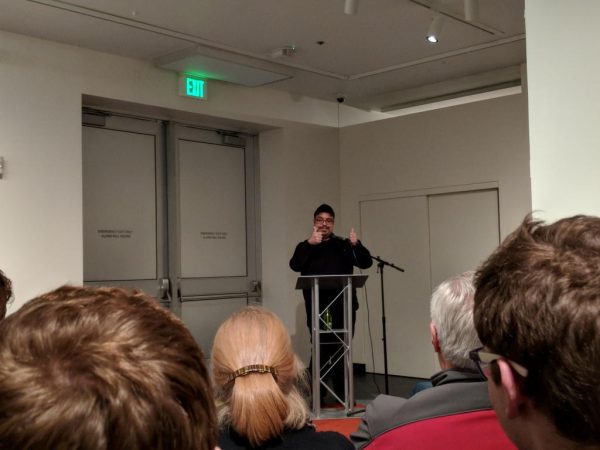
Gonzalez’s second essay recalls a layover in Dallas when he had to catch an international flight. This trip represented not just a physical change of space, but also a change of culture. As Gonzalez arrived at his flight, he switches from Spanish to English. The Spanish word atravesar means to pass through, crossing from one place to another. With that international flight, Gonzalez crossed from speaking English to speaking Spanish, entering a new sense of place and a new sense of home.
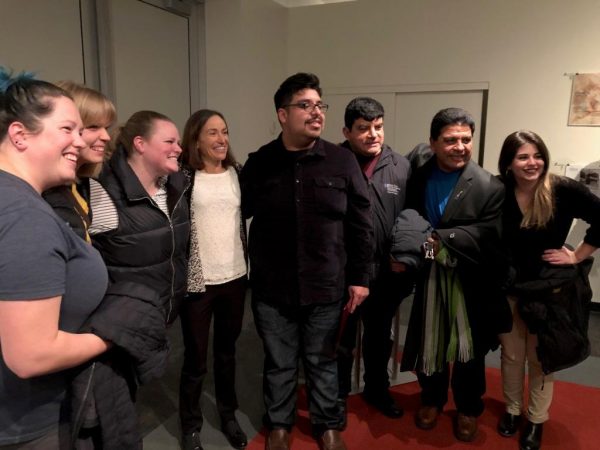
In different ways, both of these readings addressed the simpler, more common areas of life: suburbs, bodies, and airports. But these more mundane aspects of our lives can reflect larger ideas of space, identity, and home.
Don’t miss the first Creative Writing Reading Series reading on Thursday, February 21 from 7:30-9 pm in the Lory Student Center Longs Peak Room. Come hear Eduardo C. Corral read. See more about the author and the event here.

The Creative Writing Reading Series is made possible by the support of the CSU Department of English, the College of Liberal Arts, the donor-sponsor of the Crow-Tremblay Alumni Reading Series, and other generous donors. Visit advancing.colostate.edu/CWRS for more on our donors and information about how to donate.